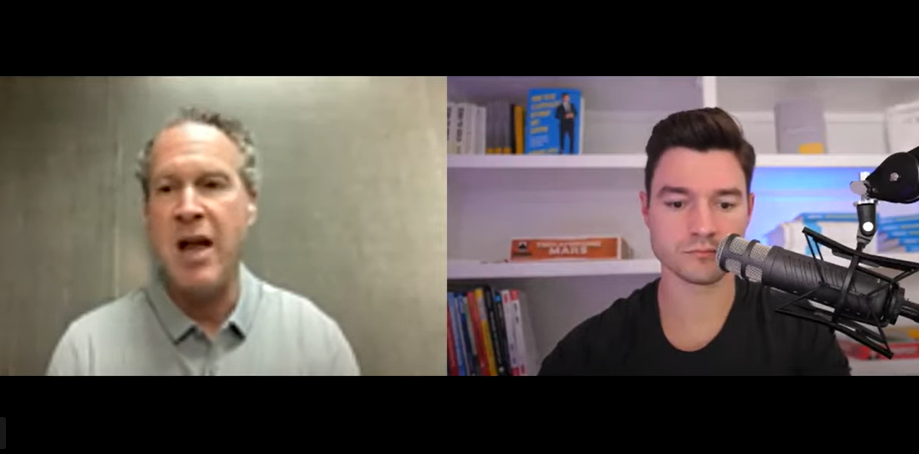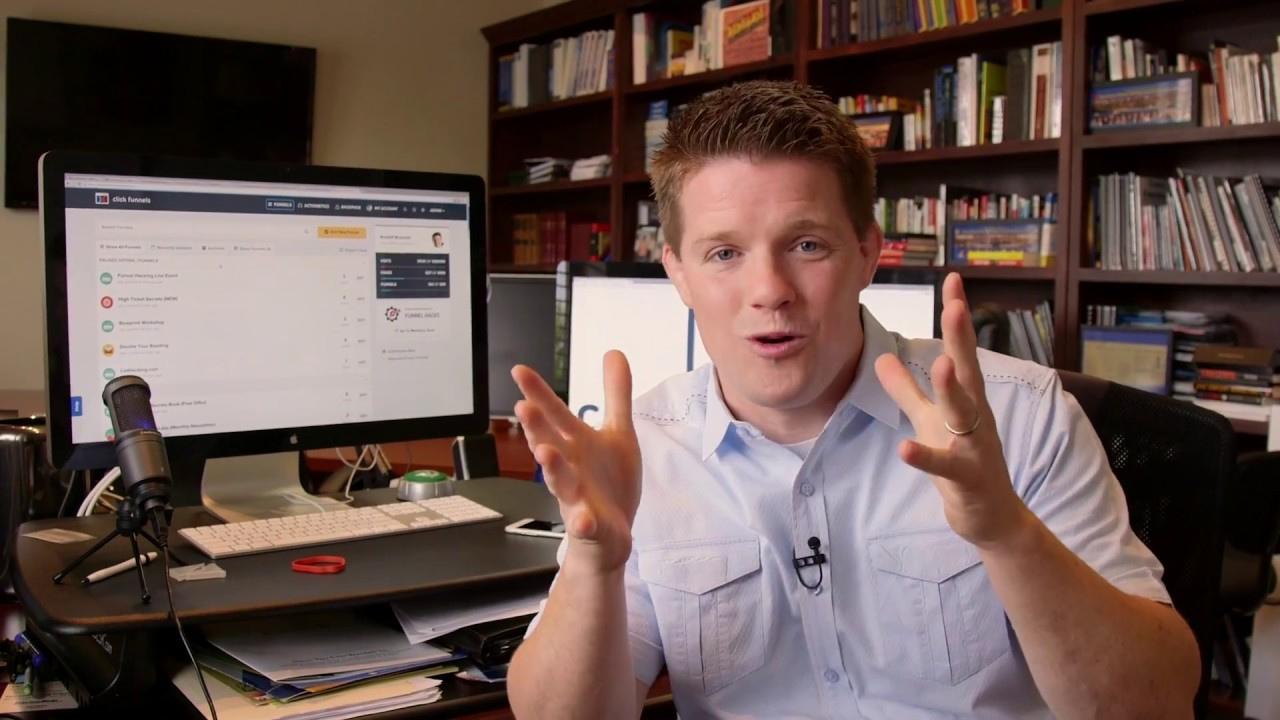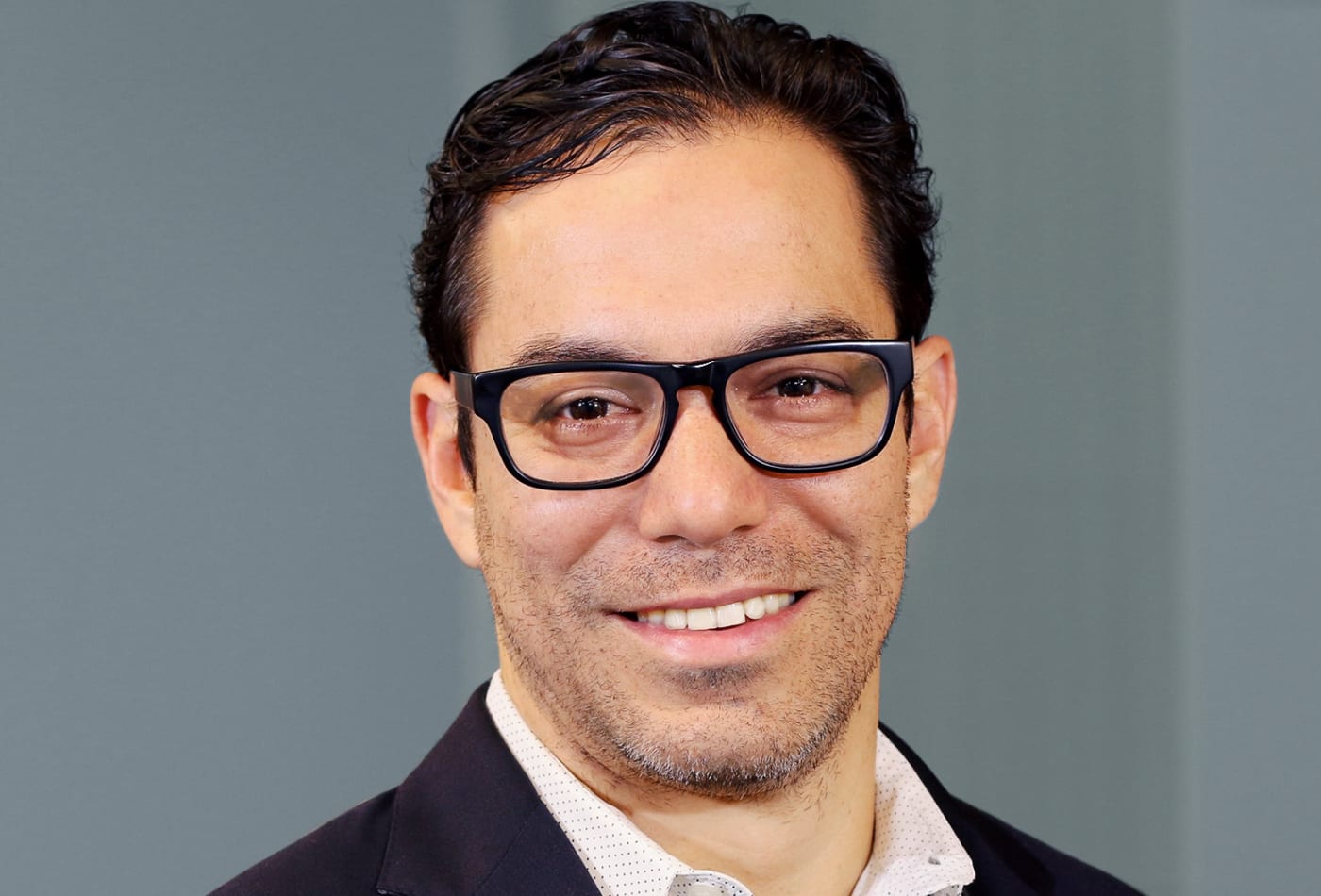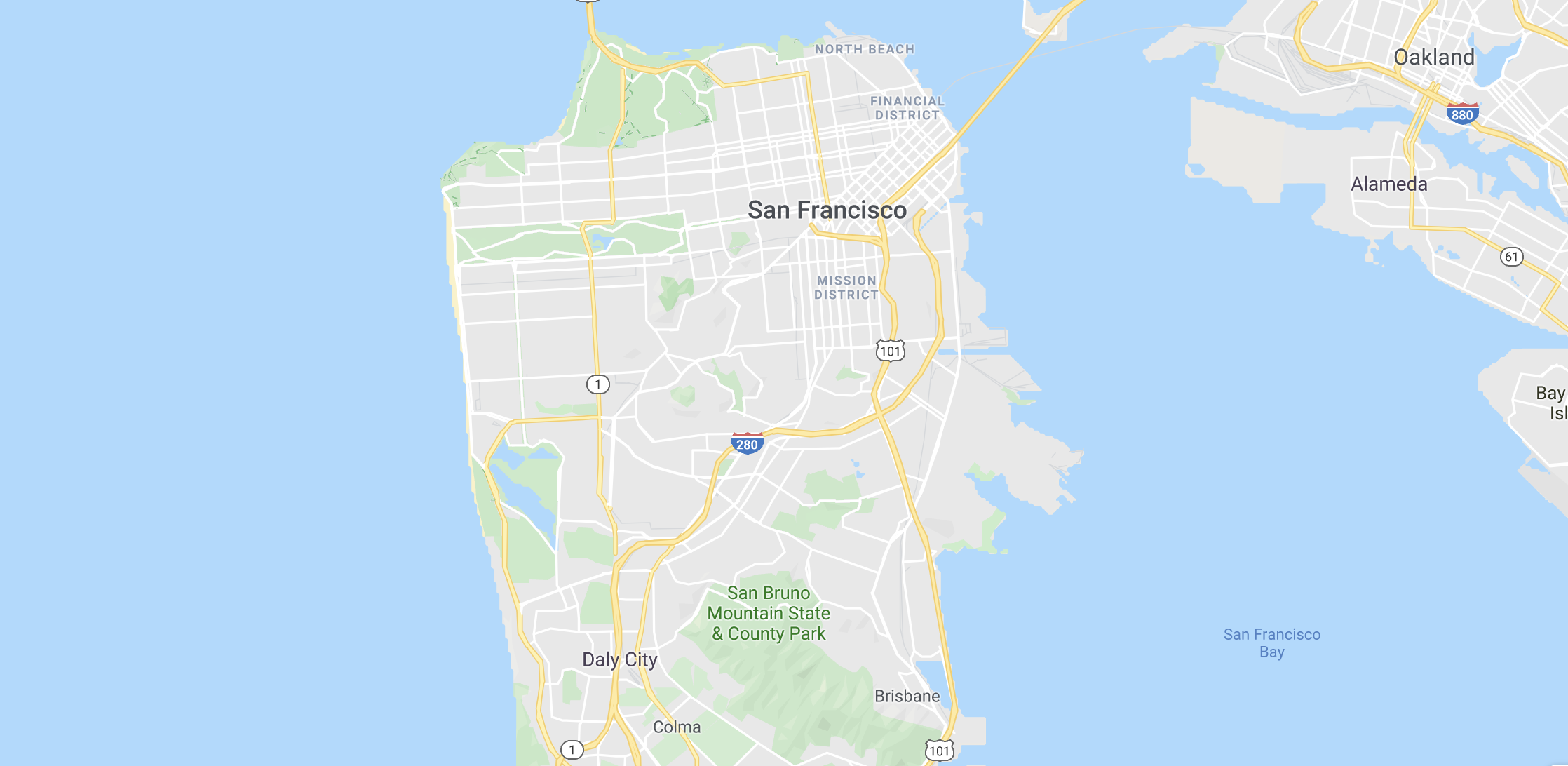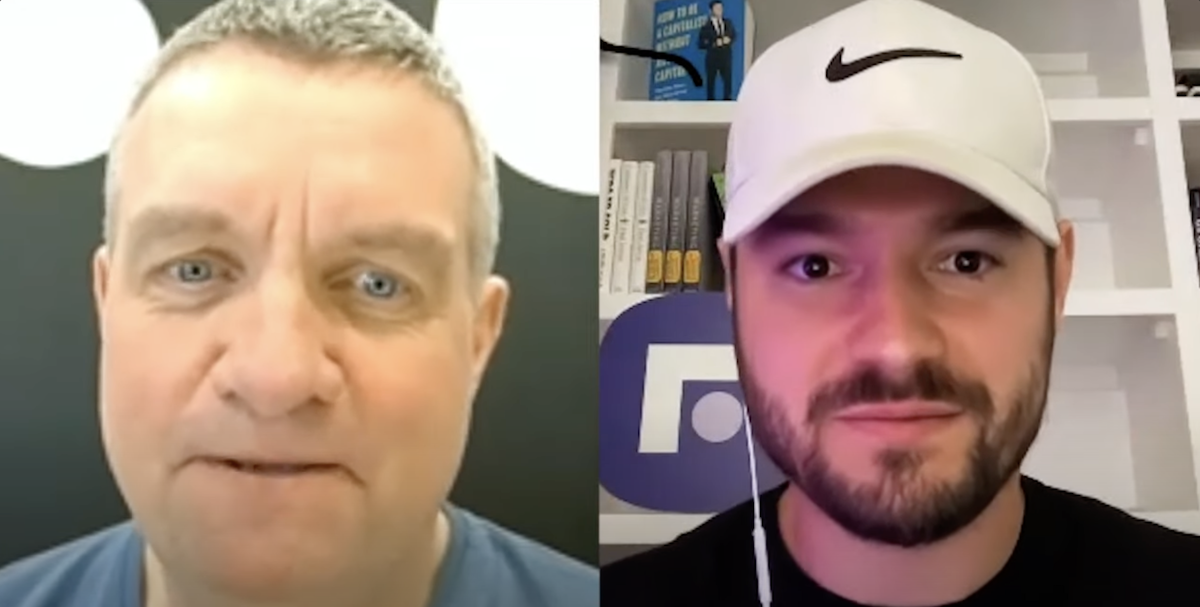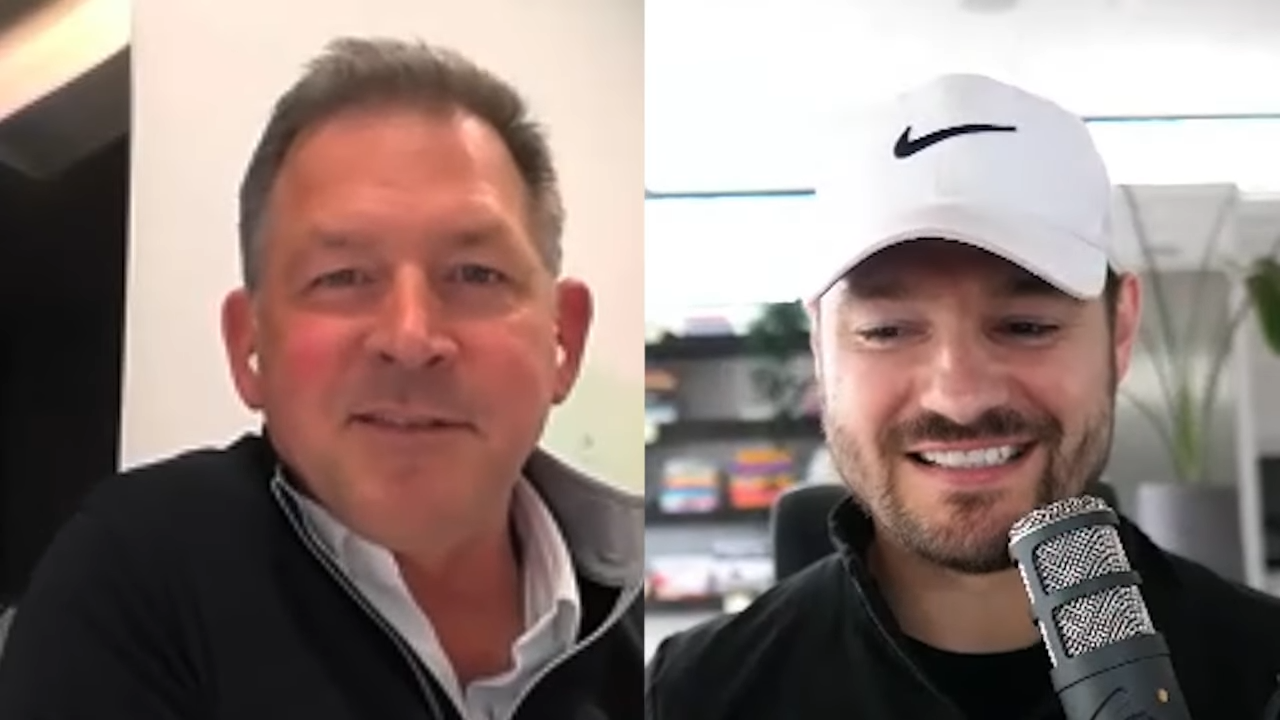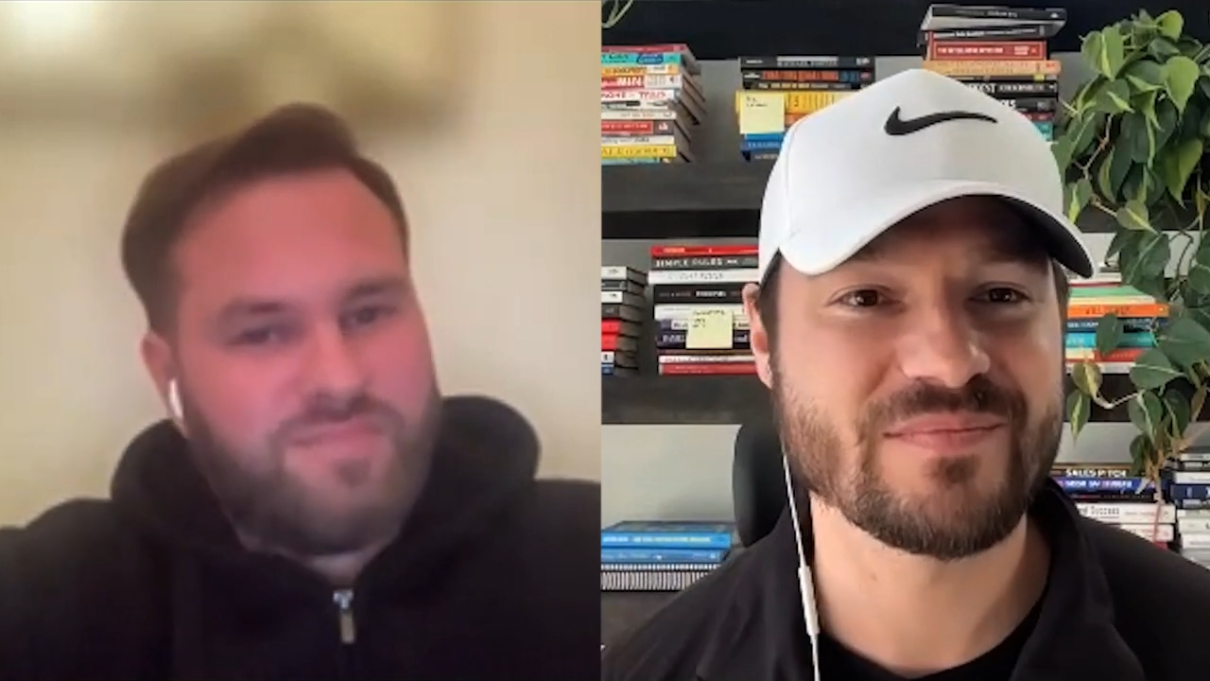Logistics and innovation run through CEO and founder of Flock Freight Oren Zaslansky’s veins. Following his parents’ footsteps, who created their own freight forwarder after years with Foreman’s van line, he founded his own 100-truck fleet at age 20, providing white-glove freight service throughout the U.S. and Canada.
Now, after 20+ years in freight, he’s built Flock Freight, the solution that’s revolutionizing the freight industry: Shared truckload. The Get Latka team sat down with him to discuss his business and diverse customer base in the transportation industry.
Zalansky leads strategy, fundraising, and executive talent recruitment and also works closely with sales development, product roadmap, and fulfillment teams. Zalansky has been in the trucking and logistics industry for 20+ years since he founded E&H Transport Network in 1996. He identified an unmet need to reduce the significant waste and antiquated approach to transportation. Too often assets are underutilized and freight moves through intermediary depots when otherwise technology could facilitate those solutions without the waste of brick and mortar.
- Generates $300m in revenue
- Founded in 2016
- 340 employees
Nathan Latka (00:00):
Hey folks, my guest today is Oren Zaslansky. He’s the CEO and founder of Flock Freight and lead strategy, fundraising, and executive talent recruitment. He also works closely with sales development, product roadmap and fulfillment teams. They are building an algorithmically carpool, LTL freight SaaS tool. It’s a mouthful. The growth is incredible. Oren, you ready to take us to the top?
Flock Freight CEO Oren Zaslansky (00:19):
I am. Thanks for having me today.
Nathan Latka (00:20):
I don’t want to bury a lead here. I had you on the show back in December, we did an interview, recorded an interview. We go deep. You teach me about shipping from LA to Chicago, trucks, terminals. I learn a bunch of stuff. And you say, “We’re doing about $75 million bucks in run rate.” I wanted to feature you in an upcoming issue of the magazine. So I pinged you, just to confirm the numbers, and you said, “Nathan, we’re at $300 run, right now, million.” What is going on? How did you get this much growth, so quickly?
Flock Freight CEO Oren Zaslansky (00:46):
Well, I think it’s fair to say we’ve achieved product market fit. We’re almost six years old. The end of 2021 we’ll be a six year old company. And the first four years were excruciating. I cringe sometimes when I meet people today, and they meet us today, and they think, “Oh, this is easy. You guys are killing it.” And the reality is like, “Well, you should have met us in 2018.” So, four years of building technology, building a business, working on use cases, getting it wrong, getting it right, getting it wrong, again, listening to the customer, iterating, iterating not pivoting, but iterating, and a very agile environment, until we really understood what they needed. And we figured that out in early 2019, and that was a guarantee of a shared truckload at the point of purchase. For the first three years we were…
Nathan Latka (01:30):
Wait, Oren, dive deep into that. Dive deep with what that means to people not familiar with trucking.
Flock Freight CEO Oren Zaslansky (01:35):
Yeah. So, the common way of moving palletized goods, first of all, goods move on pallets in the United States. So, you’re a manufacturer and you’ve made tables, chairs, computers, food, kind of everything and anything, they’re put on a pallet and they’re sent across a very dense hub and spoke. Think eight drivers, eight trucks, eight terminals to go from that LA to Chicago example that we spoke about last time. And that is, unfortunately, a very low quality. It doesn’t pick up on time, doesn’t deliver, it gets damaged, things get lost and stolen, it’s expensive, and it’s slow. These are not the key performance indicators you typically hope for.
Flock Freight CEO Oren Zaslansky (02:09):
What we do instead, is we algorithmically create carpools or what we now call shared truckloads. So a customer can come to flock and they can say, “Hey, I have four pallets. I have 12 pallets. I don’t really want to see my goods take forever and get lost and get destroyed. What is the alternative?” And we would say, “Well, we’re going to use our technology to create a ride, share, a truck share program for you. One truck, one driver. And we’ll make sure that truck is full.” And so, initially for the first three years of the firm, you could imagine if you’re building a carpooling model, there’s technology challenges, but there’s also just, what we call liquidity. You need volume. You need…
Nathan Latka (02:46):
Marketplace.
Flock Freight CEO Oren Zaslansky (02:47):
Marketplace. Got to line up time and space, simultaneity. So, it took us three years to get it to the point where it wasn’t just aspirational. We’ll try to create a shared truckload. The market, our customers told us clearly, if you could guarantee it, then you’ve got something. If you’re just going to try, that’s cool. We were building a great business. We were raising capital and bringing on customers and retaining them. But the customers told us, if you could guarantee that at a point of purchase, that I wouldn’t have to gamble on this, then you would be doing something…
Nathan Latka (03:17):
Just to be clear, these truck drivers you’re trying to sign up to add liquidity to your marketplace, and they’re saying, “Oren, I’m not going to go through the work of signing up if you can’t guarantee my truck’s going to be full.” This is why this is important to you. Is that right?
Flock Freight CEO Oren Zaslansky (03:27):
Well, there’s two components to it. That’s the supply side of the marketplace. Yes. On the demand side of the marketplace is a manufacturer, is a shipper, that says, “If you can guarantee my four pallets move hubless, don’t see eight trucks, eight drivers, eight terminals. If you can guarantee me that if I do business with Flock Freight, they’ll move on one truck, one driver and never move through a terminal.” That was the big activation moment, the big AHA! moment.
Flock Freight CEO Oren Zaslansky (03:53):
So, we built that and that meant additional optimization capability, more algorithms. But what it really meant was a pricing engine, a pricing engine that could sell you a portion of the truck and predict whether or not we, at Flock, would be able to sell other portions of the truck and ultimately get that truck full. It took us all of 2019 of getting it more wrong than right. And then 2020, it clicks. We go from 25 million to 100 million. By the end of the year we go from, we’re not totally explicit about the revenue numbers, but more than 300 million at this point, already, in October. So we’re many multiples of growth on a manualized basis.
Nathan Latka (04:34):
How are you measuring that, Oren? So, when you say 300 in October, what are you taking? October revenue times 12?
Flock Freight CEO Oren Zaslansky (04:40):
Yeah. If you said 25 million in the month of September, times 12, will be 300 million run rate, we will do more than 25 million in the month of October. So our run rate will 330, 340 million, give or take in the month of October.
Nathan Latka (04:56):
I’m looking for a gotcha. That’s what everyone listening is going to be looking for. That $25 million in October revenue, that’s SaaS margins, right? You’re not having to pay truck drivers. That’s not a GMV number, is it?
Flock Freight CEO Oren Zaslansky (05:05):
It’s not a GMV number. It is a revenue number, although I would not describe it as SaaS margins, to be fair. We have a fair bit of COGS still in this firm. So, we’ve got an incredibly automated middle of our marketplace, the optimization engine and the pricing engine is phenomenal, unlike anything that’s ever been built before. The demand side of the marketplace, the manufacturer who needs our services, is largely very automated. It’s never finished, but we are thrilled and it is easily stage appropriate. The supply side of our marketplace, we have a lot of COGS. We are still feverishly building out automated integrations with trucking companies, with carriers. So, right now, we still have a fair number of humans that are involved in what we call the fulfillment. “Hey, Mr. Trucker, are you available? What’s the price? Can we get it negotiated?” That’s the primary focus of R&D, sorting our latest fundraising around, announced about a week ago. The preponderance of proceeds…
Nathan Latka (06:08):
Hold on, Oren, don’t bury that. Real quick. How much did you raise with valuation?
Flock Freight CEO Oren Zaslansky (06:11):
We raised $215 million led by SoftBank Vision Fund, too. They led our last round, as well. This was a real preemption. With these numbers, they came to us midyear, six months into the last round, and said, “Giddy up. We’d like to deploy some more capital. Can you go faster? Do you have a use for the proceeds?” We said, “Yes, yes, and yes.” And so we raised to $215 at a $1.3 billion valuation.
Nathan Latka (06:38):
And the $113 you raised back in December, the series C, what valuation was that at?
Flock Freight CEO Oren Zaslansky (06:43):
$460, 470.
Nathan Latka (06:44):
Wow. Okay. Incredible. So, SoftBank likes marking up its own portfolio, is the lesson there and you’re driving incredible growth. Now, that’s what I should take from that?
Flock Freight CEO Oren Zaslansky (06:52):
Well, well, to be fair, the latter, yes. The former, no, they don’t like marking themselves up. I’m not going to speak to it, but you’ve got a smart audience, that can be problematic. We brought in other pretty significant investors into the round. I’d say most notably, we brought in Susquehanna. SIG is a major private equity growth equity fund at $15, $20 billion. So, they’re participating in this round. We brought in a firm from New York called Eden Capital coming into this round. We also had pro rata, in some cases, I think super pro rata from insiders.
Flock Freight CEO Oren Zaslansky (07:23):
So, SoftBank was about half of the check in this round. We had another 100 million dollars come in on top of what SoftBank wrote. SoftBank wanted to write a much larger check, initially, up to 300 million. And from a construction standpoint, we manage that number down, I guess it would say, so that our other insiders could also continue to buy up and we could bring in new capital. Everybody loves to see some new faces around the table in a round like this.
Nathan Latka (07:51):
Was 215 the actual size of the round or did you raise a bunch more that went into secondary?
Flock Freight CEO Oren Zaslansky (07:57):
No, it was $215 was the size of the round.
Nathan Latka (08:01):
Okay. Was a point, did all that go right to the balance sheet, or did you provide liquidity to some early folks?
Flock Freight CEO Oren Zaslansky (08:05):
A little bit of liquidity to early folks, but only team members, not investors. No investors wanted out, I can certainly say that.
Nathan Latka (08:13):
I believe that. And when you say a little to the team members, under $50 million of the $215?
Flock Freight CEO Oren Zaslansky (08:17):
Yes.
Nathan Latka (08:18):
Okay. Very cool. Let me ask you a different question. Anyone doing the calculations in their heads, they’re thinking $300 million dollar run rate, $1.3 billion dollar valuation, that’s a very low multiple for others that are at this revenue stage. Would you just say that’s because your cost structure and the COGS associated with the business model?
Flock Freight CEO Oren Zaslansky (08:33):
Yeah. It’s largely an issue of COGS. We have to balance that all the time where every founder does. We call it the balance between fear and greed. And the key word there is balance. There are times where you don’t want to raise, because you’re very greedy and there’s times where you’ll take every dollar thrown at you because you’re fearful. As a founder, I’ve been in both of those situations and there’s no shame. You’ve got to capitalize your business and make payroll.
Flock Freight CEO Oren Zaslansky (08:58):
I think the key lies in the balance. Flock is going to be something gigantic. We believe we can build a $50 billion, $100 billion revenue firm. I think it’s fair, though, to put us more in an Amazon type quadrant, than a Google type quadrant, from a cost structure. We are always going to have some COGS in this firm. And so, from a multiple standpoint, they are lower than they are in a true SaaS firm. I think that’s fair. The flip side is, we’re in a US $1 trillion space and we’re going to build many billions in revenue in the next three or four years. So I think, ultimately the exit value of this business will be in the many, many, many billions going into the public markets.
Nathan Latka (09:42):
Do you stay private or are you going to go public market, Q2, Q3, next year?
Flock Freight CEO Oren Zaslansky (09:45):
No, no, no. We want to stay private for at least a few more years. I’d say, let’s say, three years is a bit of an educated guess.
Nathan Latka (09:53):
Yep. Interesting. Talk to me a little bit more about what metrics are important for you, internally, that might not be obvious to me. How do you measure marketplace liquidity, for example?
Flock Freight CEO Oren Zaslansky (10:02):
Well, the key, I think, metrics for us at this point are, we’re constraining our growth. We could go faster. We need more automation on the supply side, more integration on the supply side. So, we’re measuring the total number of transactions that move through automation. Single digits going to double digits and scaling. Basically, what percentage of this business in 2022 and 2023, can we fully automate what we call quote to cash? So, from a customer who’s just beginning their journey with us, all the way through to collecting capital. Obviously…
Nathan Latka (10:33):
Oren, is that that number… Sorry, I don’t mean to cut you off, but you told me last time, in 2019, you had $10,000 freight bills go through the platform. In 2020, you said it was between $10,000 and a $100 thousand, for 400% growth. Is that what you mean when you say, number of quotes going through?
Flock Freight CEO Oren Zaslansky (10:46):
No. We moved last month, now, already like, $16,000 freight bills in the month. So, that’s the growth. When I mean automation, right now, on the demand side of the marketplace, it’s automated. Customers order via integration or self-serve online. Now, we have humans here to support that, but it’s as automated as we feel it should be. Within the middle of the firm, the technology, the hard, hard tech of optimization, the algorithms, the pricing probability work that we do, that is also automated. But when we get to the supply side, “Hey, truck driver, will you move this freight? And if so, at what cost? How much available space do you have on board?” It’s only about 10% of the transactions on that end are really, totally automated, at this point. We want to take that number up. It’s not going to be a 100%, but to 80 or 90%. And we want to do that in the next 12 to 18 months. That’s the big use of proceeds.
Nathan Latka (11:37):
Are there any startups that have already figured that out, that you’d go buy?
Flock Freight CEO Oren Zaslansky (11:40):
Maybe. We’re taking a cold hard look at that. There are a few that make that claim. It’s unclear if it’s real. The US truckload industry is enormously fragmented, which in the long run, is great news. Marketplaces thrive and fragmentation, little players have a chance to participate, day one. The challenge though, is, there’s no clear aggregated point of volume where you can just go plug into a startup, either as a partner or to acquire, obviously we’ve got a pretty big balance sheet. We also have enormous capital partners, who would love… We had a board meeting two days ago and they’re asking me, “Hey, any acquisition targets? We got our checkbook out. We feel pretty great about you.” And the answer is, “We’re looking at it, we’re looking at it.” But it’s unclear that acquisitions are always the panacea that many believe.
Flock Freight CEO Oren Zaslansky (12:27):
The data on acquisitions is pretty, pretty gruesome. 75 to 80% of acquisitions destroy value. Flock is not being built to say, “Yay, we’re a billion dollar company, do some secondaries, and that’s that.” Flock is being built to be a hardened, scalable platform that goes into the public markets and endures for decades and fundamentally changes the way freight moves in this country, initially, and then ultimately, globally. So it’s not to say we’re adverse to some easier, fast wins, those are nice to have, but it’s not what we’re focused on. We’re focused on long term value.
Nathan Latka (13:00):
How do you have that long term focus? Many startup founders, when they hit a 1.3 billion valuation, they take secondary off the table. It’s the first financial windfall for them that’s important for them. And then they go take the next big swing. Did you already have an exit before this so this is your big swing?
Flock Freight CEO Oren Zaslansky (13:14):
I haven’t had exits, but I have founded two previous traditional freight companies. And I’ve made a very nice living for 10, 15 years. So, I’m okay. I don’t know that I want to disclose my salary here, but I will tell you, I am far from being the highest paid person at Flock. I’ve got a relatively modest salary and that’s okay. I’m playing for the equity and I’m playing for significance and I’m playing for purpose. We’re the only certified B Corp in freight. We have an opportunity to make a 40% reduction in greenhouse gas, if we’re successful at scale. That’s important to me. I want to relentlessly remove waste and inefficiency from the US transportation system.
Flock Freight CEO Oren Zaslansky (13:56):
So, I figure, everything worth doing is hard, so let’s take hard off the table. It’s not that interesting. I want to do something that’s purposeful and something significant. And I think I’ll be financially rewarded along the way. So, the secondaries are great. They give a lot of comfort. There was some wealth distributed last week, and I couldn’t be more proud to have been a part of that, seeing people on my team and that the first, the OGs, as we call ourselves.
Nathan Latka (14:25):
The 2016 OGs.
Flock Freight CEO Oren Zaslansky (14:26):
The 2016 OGs having an opportunity to bring some comfort to their families, is significant and purposeful. And at the same time, we are just getting started. We take this thing into the public markets and we keep going.
Nathan Latka (14:38):
Managing dilution, as you scale, is a tricky thing. Most founders think about that after the fact and wish they did a bunch of stuff differently. You mentioned equity is really what you’re playing for. Can I ask how much equity you’ve been able to hold onto up to this point?
Flock Freight CEO Oren Zaslansky (14:50):
You can ask, I’m not going to answer that question, directly.
Nathan Latka (14:52):
Can you give me a range?
Flock Freight CEO Oren Zaslansky (14:57):
I’m going to own a small piece of something very big.
Nathan Latka (15:01):
No, that’s a political answer.
Flock Freight CEO Oren Zaslansky (15:03):
It’s a lot on paper. But look, let say this, and I think it’s helpful to your audience because, understanding my wealth on paper, I don’t know if it’s helpful. What is helpful, this was advice I was given by my lead investor from Google Ventures, who led our series A GV, a guy named Joe Kraus. Joe Kraus is a super successful founder. Founded Excite back in the nineties, the original search engine. [crosstalk 00:15:26].
Nathan Latka (15:25):
He was your series B lead?
Flock Freight CEO Oren Zaslansky (15:27):
Series A.
Nathan Latka (15:28):
Oh, series A lead. This was $18 million in 2017, right?
Flock Freight CEO Oren Zaslansky (15:30):
Yeah. Yep.
Nathan Latka (15:31):
And you were what? That was probably like, what? $90, 100 million valuation, back then?
Flock Freight CEO Oren Zaslansky (15:35):
No, half that. That was $57 or eight. [crosstalk 00:15:41] It was actually about six… No post. The pre was 41, 42, something along those lines.
Nathan Latka (15:48):
Okay. Back to your Google guy.
Flock Freight CEO Oren Zaslansky (15:49):
And what he taught me was, “Look, you’re going to be taking on a lot of dilution along the way. And I get it, as a former founder, now turned investor. It’s going to make you crazy, but let me convince you, otherwise. You have a certain number of shares and that number of shares doesn’t change unless you sell them. And if you sell them, then you have sold them. But until you sell them, that numerator, so to speak, does not change. The denominator of the firm is changing, right? You’re issuing new shares every time you raise money. But you have a certain number of shares. Your job is to take it from a 10th of a penny, when you found, and you do your hopefully 83B founders out there, do your 83B, QSBS is real, at least for now, may go away. But, you want that. You really want that. And your job is to take it from a 10th of a penny to a penny, to a dollar, to $10, to $50, to 100 dollars, to 100s of dollars, if you can.”
Flock Freight CEO Oren Zaslansky (16:43):
So, I’ve hung onto that. My percentage of ownership has gone down, but what is hopefully helpful to some of your viewers and your listeners is, I don’t think about it anymore. I really don’t. Cause I need capital. I need capital to build this business. We are not a traditional high margin SaaS firm, but we’re building something absolutely massive. My job complexity is that, we’re a big business, 100s of millions in revenue, 100s and 100s of employees, need to double our head count.
Nathan Latka (17:09):
How many, now? How much head count?
Flock Freight CEO Oren Zaslansky (17:12):
Almost 350, 340 employees. We’re going to be 7, 800 by this time, next year. That’s just complicated, from an organizational structure and leadership standpoint. That’s really where my time is going, but my number of shares doesn’t change. But if I can take the share price to 100, if I can take it to 150, going into an IPO, that is a lot of money. It’s already a lot of money, now. That is a lot of money. So, for the founders out there, you’re going to make yourself crazy going from 100 percent of a pie or two co-founders, 50, 50, however you split it up. Yeah, that number goes down. For most founders, it ends up in the single digits. I am not yet in the single digits. I will publish that. [crosstalk 00:17:53]
Nathan Latka (17:53):
I was just going to finish with the last question and say, Oren, I promise I’ll move on after this, but more or less than 10%, but you just answered it. So more than 10%, right now.
Flock Freight CEO Oren Zaslansky (18:00):
I’m a double digit guy, but to be fair, I was mostly a sole founder. I have some co-founders that are advisors, they’re not operators. So they started with single digits, pre-dilution, and I had basically the whole cap table. But number of shares by the price per share and then get it liquid. That’s the job.
Nathan Latka (18:17):
There you guys go. Oren, last question here, because you’re one of the few I can ask this. You want to use investors almost like employees. You want to bring them on strategically, get them work to do, and make them hustle like hell to help build the business. How do you give work to SoftBank? How do you ask someone that big, that powerful, that impactful to do work for you?
Flock Freight CEO Oren Zaslansky (18:33):
Good investors want to be helpful and they know they’re not us. So, SoftBank is famous, they’re infamous, I get it. Working with Masa is a tiny piece of what we do when you’re a SoftBank portfolio company, but really, you live within your deal team. So, within my deal team who, of course is on my board, again, board meeting on Wednesday, I challenged my team and a couple of things. I said, “Number one, I understand how the private markets think.” We’ve raised nine rounds, about half-priced kind of series C through series D and also some notes in between, because getting started or bridges up, bridges down, never down bridges, but kind of the good bridges and the hard bridges along the way.
Flock Freight CEO Oren Zaslansky (19:11):
And I’d said, “Look, I know how the private markets think about us. I understand what the story is. I’ve done it nine times. I understand what the key metrics are, in order to create shareholder value. I don’t yet understand the public markets. And yet, this business is headed to the public markets. We’re not yet ready to hire a banker. We’re not yet ready to start talking to the exchanges. So, I wouldn’t quite call us pre IPO, but we’re pre-pre IPO, meaning, find me people that can educate me on the story and under the key metrics to understand how we need to shape this firm over the next two or three years to get it ready for the public markets. You find those people. I’m too busy. Go to work. Number one. Number two is, talent, talent, talent.”
Flock Freight CEO Oren Zaslansky (19:49):
We’re looking for a vice president of engineering, a VPE. Our VPE was promoted into CTO, he’s phenomenal. Lu Saenz, the first person we hired, absolutely transformative. And now, we need to recruit a VPE to replace him, on the day to day. Tough role to fill, as you can imagine. Tough labor markets. So, I put my investors to work and I literally said this to them. I would say, founders also, don’t be shy of putting your board to work. I know you love all your kids equally, meaning your portcos, but you love me a little more. Send me the top talent. Let me know if there’s a company dying. We could do an acquihire. You see a lot of things I don’t see. Love me just a little more than your other children and help us bring out a world class VPE.
Nathan Latka (20:32):
Guys. There you have it. Oren, Flock Freight. Oren, if people want to learn more about you and the business, where can they visit?
Flock Freight CEO Oren Zaslansky (20:37):
Flockfreight.com. You can drop me a note, directly, [email protected]. I promise, that’s me. That doesn’t go to marketing or somebody else. I love to meet folks.
Nathan Latka (20:47):
And the $1.3 valuation, pre or post?
Flock Freight CEO Oren Zaslansky (20:50):
Post.
Nathan Latka (20:51):
It was post. Guys, there you have it. Incredible growth, $75 million in terms of run rate, just, oh gosh, 10 months ago. Now, over $300,000, in terms of run rate. $25 million a month and growing very quick. They’ll double their teams over the next year. Really focused on building a decades long company, eventually, the public market’s called, in two to three years. We’ll see what happens next. Oren, thank you for taking us to the top.
Flock Freight CEO Oren Zaslansky (21:09):
Thanks for having me on.
